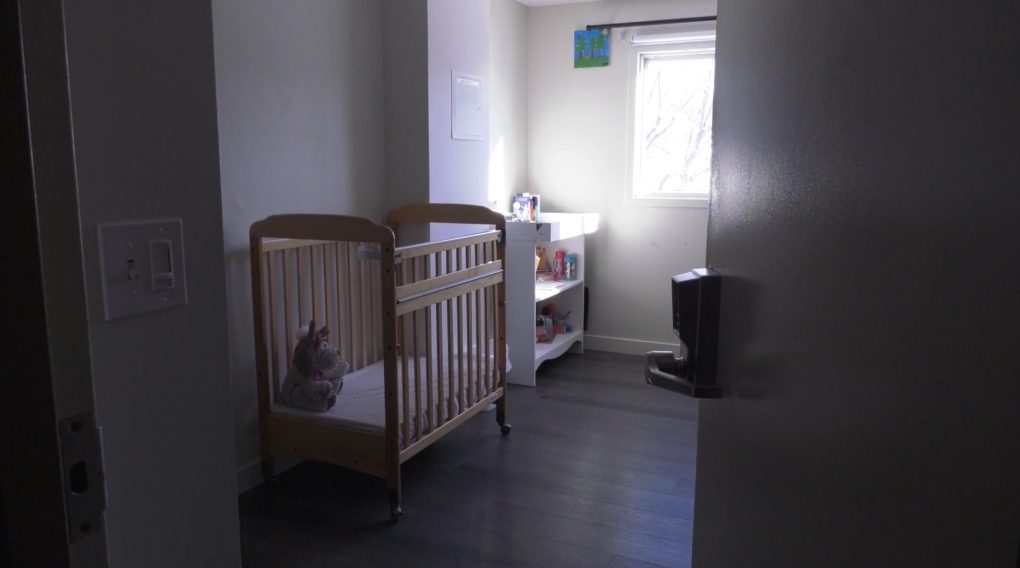Reports highlight staff burnouts in women’s shelters, violence against women
On this International Women’s Day two separate reports — one national and one local — show the struggles many women are up against, particularly those working in the shelter system.
“The residual sort of impacts of COVID and having to deal with the trauma coming out from that,” explained ANOVA London Executive Director Jessie Rodgers.
She was reflecting the report the ‘Feminist Brain Drain’ from Women’s Shelters Canada. It found sparse, inadequate funding is driving a burnout crisis among staff at women's shelters and transition homes across the country.
“We weren’t able to deliver as much service as we needed [during COVID], so now we’re seeing survivors who waited longer, and whose trauma is just way more impactful,” said Rodgers.
The report surveyed 300 employees at shelters and transition houses across Canada. Among its key findings, 28 per cent have thought about quitting their job, 79 per cent have experienced trauma, either personally or professionally, and 31 per cent have often felt overwhelmed by their caseload.
Further, the report found the level of compensation in the field makes it difficult to hang on to employees. Approximately two-thirds of respondents in non-managerial roles reported making less than $50,000 per year, while approximately one-third of respondents have at least one more job just to make ends meet.
 A women's shelter is seen in this undated file image. (File)
A women's shelter is seen in this undated file image. (File)
Report co-author Robyn Hoogendam of Women’s Shelters Canada said this has a de-stabilizing effect.
“Organizations are under-funded and they’re not seeing increases that align with cost of living and with inflation, so they’re not able to increase salaries. Individuals are going to other places that are able to pay them more competitive salaries,” said Hoogendam.
She added that many who enter the field see it as a training ground to be able to move on to higher paying positions, particularly within government.
Meanwhile, the London Coordinating Committee to End Woman Abuse has released its snapshot for 2023. It said that in Ontario last year, 62 women and girls were killed by men who claimed to care for them.
“I think what it’s telling us is that the issue is not getting better, it’s getting worse, and we’re being asked to respond, and we’re going to need everybody’s support to be able to answer the call,” said Rodgers, who co-chairs the committee.
The snapshot also points to July 25, 2023, when the City of London officially declared intimate partner violence and femicide an epidemic.
CTVNews.ca Top Stories

Halifax airport runway reopens after plane caught fire upon landing
The plane that caught fire upon landing at Halifax's airport over the weekend has been removed, and the runway has reopened.
Liam Payne's manager, hotel staff failed 'vulnerable' singer before death, judge says
An Argentine judge argued that the manager of singer Liam Payne and employees of the hotel where he was staying failed the popstar in the moments before his death, according to the prosecutor's office.
2024 has been a nerve-wracking year for plane travel. How safe is it really?
Anxious airline flyers may well remember 2024 as the year their worst fears about the safety of air travel felt confirmed, as a series of unprecedented, and in some cases fatal, airplane incidents captured headlines.
Father and daughter found dead in northwest Calgary
Calgary police are investigating the death of a father and daughter on Sunday night as a double homicide and believe it's the result of a domestic incident.
New Year, New You: Setting achievable resolutions with a mindful approach
Many people set New Year's resolutions but not all resolutions are created equal. Here are some tips on how to set your goals according to an expert.
Year in review: Notable people who died in 2024
Here is a roll call of some noteworthy figures who died in 2024.
Mexico to investigate a town that thanked a drug lord for holiday season gifts for children
Mexico's president said Monday that prosecutors are investigating officials in a town where a sign was posted thanking a drug lord for holiday season gifts for children.
opinion Tom Mulcair: Grading Trudeau's performance in 2024, and what's ahead for him in the new year
Prime Minister Justin Trudeau is about to enter the final year of his mandate and, quite possibly, of his political career, writes Tom Mulcair in his column for CTVNews.ca. The former NDP leader takes a snapshot of Trudeau's leadership balance sheet as a way of understanding how he got to where he is in the polls.
Murder, she spoke: Violence and death getting mentioned more often in movie scripts, study finds
A new study shows that movies have more violence in them than ever -- or at least, movie characters are more interested in talking about it.
































